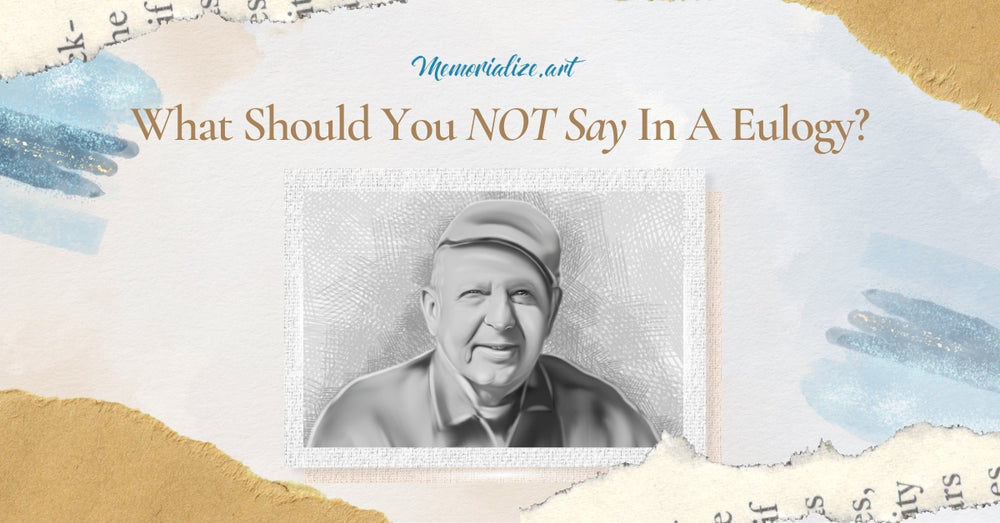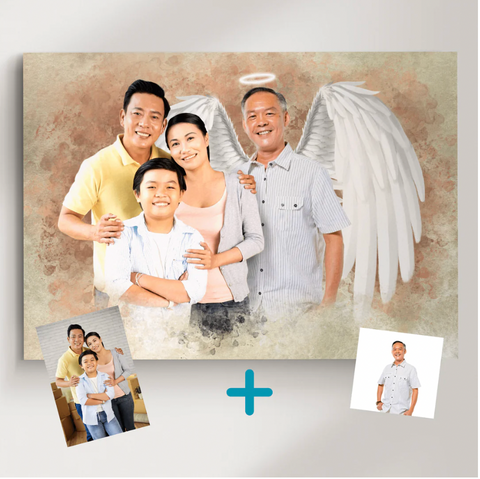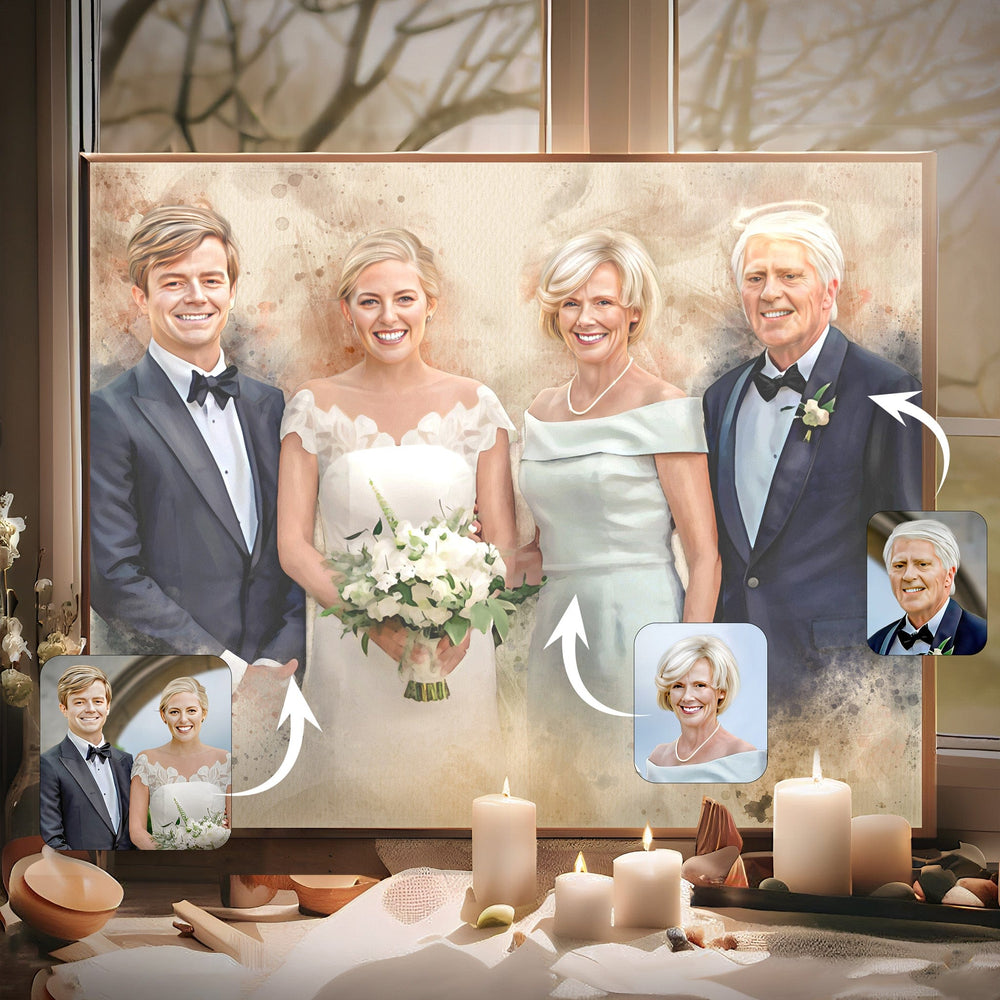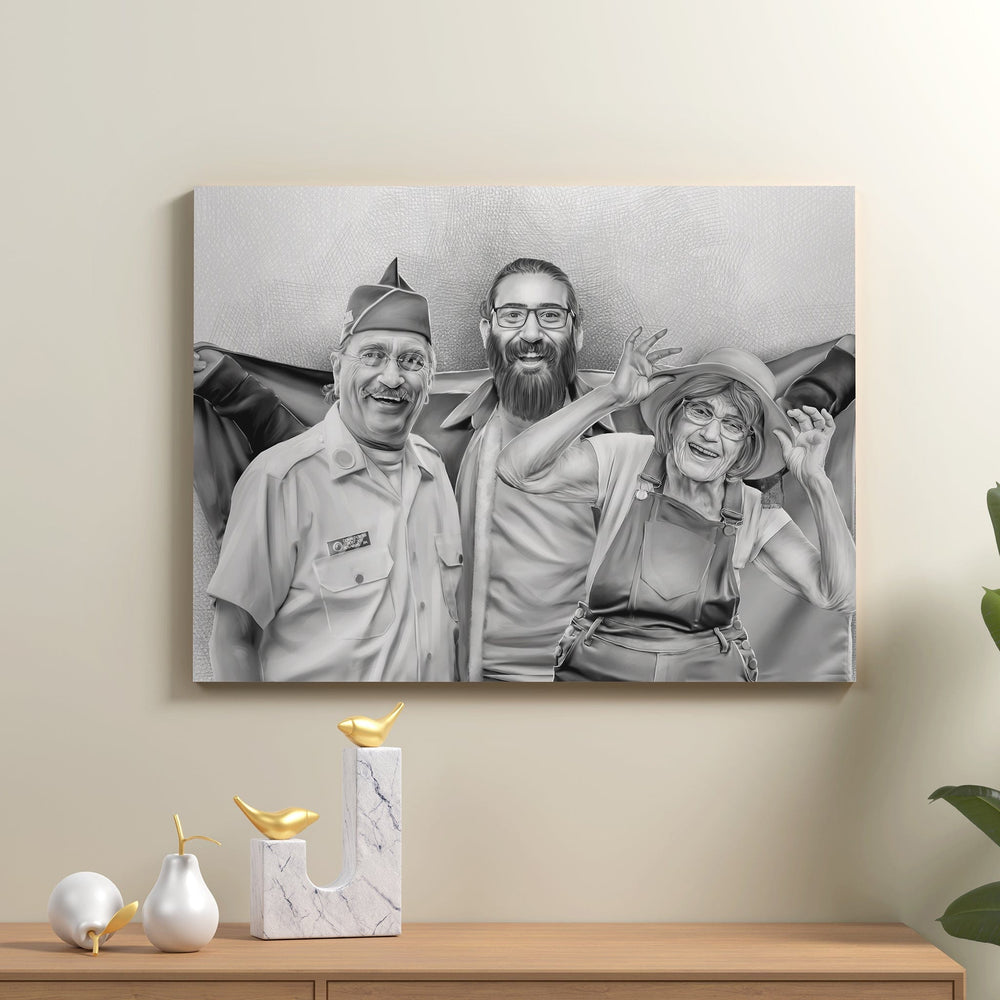What Should You NOT Say In A Eulogy?


Photo by Pavel Danilyuk from Pexels
When it comes to honoring a life well-lived, a eulogy stands as a poignant testimony to the memories and legacy of the departed. But amidst the grief and the desire to celebrate the deceased, it’s essential to navigate the delicate intricacies of remembrance with respect and sensitivity. In this thoughtful exploration, we delve into the don'ts of such a tribute, specifically focusing on what you should not say in a eulogy. Understanding these boundaries is key to crafting a speech that not only pays homage to the person who has passed but also provides comfort to those who mourn.
The Importance of Avoiding Common Mistakes in Eulogies
Crafting a eulogy speech is an emotional task and a profound responsibility; it's a narrative that weaves personal stories, fond memories, and the life story of the departed into a meaningful tribute. The importance of avoiding common mistakes cannot be overstated, as a well-composed eulogy can offer solace to the bereaved and celebrate a life in a manner that resonates with every listener. It's not just about listing achievements or recounting anecdotes, but about capturing the essence of the individual in a way that honors their unique journey. By sidestepping pitfalls, a eulogy can transform from a mere speech into a powerful testament to the indelible mark left by the loved one on the tapestry of life.
How Long Should A Eulogy Be?
The duration of a eulogy can often be a subject of contemplation. A heartfelt tribute doesn't adhere to a stopwatch, yet the ideal eulogy length typically spans between five to ten minutes. This window allows for a comprehensive reflection of heartfelt memories and an expression of the essence of the loved one's journey, without overwhelming the emotional capacity of the audience. It is enough time to weave a narrative that feels neither rushed nor drawn out, offering a fitting tribute that celebrates life in a respectful and thoughtful manner. The key is to engage the hearts of those gathered, leaving them touched by the words spoken and connected through shared remembrance.
What You Should Not Say In A Eulogy: Common Mistakes
When delivering a eulogy, it is a time to reflect on the positive impact and the cherished moments shared with the deceased person. However, certain missteps should be avoided to maintain the respect and decorum of the occasion. Here are some common mistakes people should be mindful of:
Being Overly Negative or Critical
While honesty is generally appreciated, a eulogy is not the appropriate platform for airing grievances or highlighting the negative aspects of the deceased person. Even if done in jest, it can come off as disrespectful or hurtful to those who are mourning. Focus instead on the positive aspects and the happy memories shared.
Sharing Inappropriate Personal Stories
Personal stories can bring a eulogy to life, but they should be chosen with care. Avoid personal anecdotes that might be embarrassing or revealing of sensitive information about the deceased person or the funeral attendees. The goal is to honor their memory and to allow everyone to remember them fondly.
Making It About Yourself
While your relationship with the deceased is significant, a eulogy should not center around you or your own experiences exclusively. It's essential to include the broader impact the deceased person had on others and to make the eulogy relatable to all who are present, providing a collective sense of comfort and closure.
Diving Into Controversial Topics
A eulogy should not be a platform for discussing contentious subjects such as politics, religion, controversial family matters, or any other topic that may cause division among mourners. The focus should remain on uniting everyone in the shared grief and celebration of the deceased's life.
Forgetting the Audience
A well-written eulogy is meant to be a shared experience with those who are gathered to mourn and remember, not just those closest to the deceased person. Avoid using inside jokes or references that exclude most of the audience. Aim to connect with everyone through universal themes of love, life, and legacy.
Overloading with Clichés
While it's natural to want to express your emotions, relying too heavily on clichés can make your speech feel impersonal and insincere. A genuine eulogy should feel like a personal conversation, a reflection of true heartfelt memories, not a collection of overused expressions. Strive for authenticity in your words to create a fitting tribute.
Examples of Inappropriate Eulogies
Delivering a eulogy is a solemn and significant moment, but sometimes, despite good intentions, individuals can miss the mark. Here are examples of inappropriate eulogies that highlight what should be avoided:
The Roast-Style Eulogy
While humor can be healing, a eulogy that resembles a comedic roast is inappropriate. Sharing embarrassing stories or inappropriate jokes at the expense of the deceased can be hurtful to those who are grieving and can tarnish the memory of the loved one.
The Air of Grievances Eulogy
A eulogy is not the time to settle scores or air personal grievances, no matter how relevant they might seem to the speaker. Mentioning past conflicts, disappointments, or the deceased's shortcomings can create discomfort and is considered disrespectful during a time meant for mourning and reflection.
The Too Much Information (TMI) Eulogy
Sharing overly personal details about the deceased's private life or struggles, especially those unknown to the wider audience, can be deeply inappropriate. This includes discussing topics like addictions, legal troubles, or intimate relations.
The Self-Promotion Speech
A particularly tactless eulogy is one where the speaker uses the time to promote their own agenda, business, or achievements, rather than focusing on the life of the deceased. This self-centered approach is inconsiderate and can be offensive to those who are there to mourn and remember the deceased.
The Philosophical Ramble
Here, the speaker veers off into a philosophical tangent, discussing the nature of life and death rather than focusing on the deceased. While some reflection is expected, making the eulogy a platform for personal musings can be seen as inappropriate and disrespectful to the memory of the deceased.
FAQs
What is the best closing line for a eulogy?
The best closing line for a eulogy often combines a poignant encapsulation of the individual’s life with a message that resonates with the audience’s shared sense of loss and remembrance. It might include healing grief quotes that offer comfort and a perspective of enduring connection, such as "Their love leaves an indelible imprint in our memories. We find comfort in knowing that our lives have been enriched by having shared their love." This line not only honors the deceased but also provides solace to the bereaved, reinforcing the everlasting bond and the impact the loved one has left behind.
What makes a powerful eulogy?
What makes a powerful eulogy is its ability to authentically capture and convey the essence of the person it celebrates. A powerful eulogy tells the story of the person—not just their accomplishments but also the quirks, passions, and essence that made them uniquely themselves. It’s about knowing how to write a eulogy that weaves together the narrative of the person’s life with the threads of shared experiences, impactful moments, and the legacy they leave. Such a eulogy resonates on a deep emotional level, offers comfort, and perhaps even inspiration, as it honors the individual in all their complexity and humanity.
Keep Their Memory Eternal with Memorialize Art

Order a memorial gift for your beloved pet here.
In the journey of farewell, it is as important to be mindful of our words as it is to hold our memories dear. As we conclude our exploration of what should not be said in a eulogy, let us remember that the right words can be a balm for the grieving soul, while the wrong ones can linger long after the service has ended. To honor the legacy of those we've lost, consider transforming cherished memories into lasting memorial gifts with Memorialize Art.

Memorialize Art offers a unique service that can add a deceased loved one to a photo, creating a beautiful, personalized artwork. It's a way to keep their image by your side, capturing their spirit in a piece that celebrates their life's story. Visit Memorialize Art to find solace in a keepsake that is as timeless as the love and memories shared.










